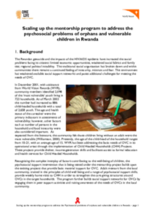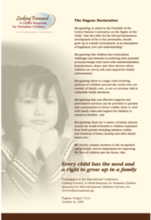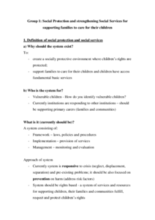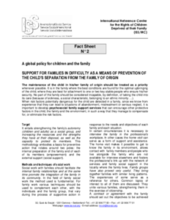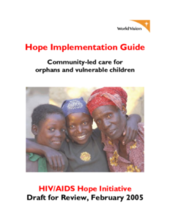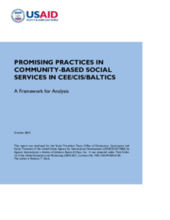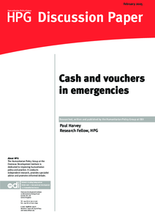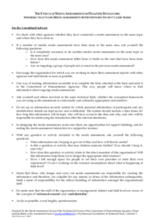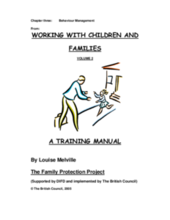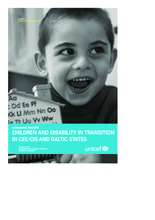Displaying 871 - 880 of 922
Outlines the results of World Vision Rwanda’s mentorship program for children in child-headed households and other OVC. Includes challenges and lessons learned.
Recognition of the crises affecting children and a commitment to improving the lives of children.
This document presents notes from the Group 1 session of the Alternative Care Workshop in Bangkok in November 2005, focused on Social Protection and strengthening Social Services for supporting families to care for their children.
Brief summary of the importance of social work in preventing family separation, including increasing empowerment, social support and self-assessment processes.
Detailed guidance on implementation of programs for OVC care. Includes list of technical resource contacts. Complement to the World Vision ADP Toolkit for HIV/AIDS Programming.
Provides a framework for analysis of community-based social welfare services and linkages with government structures. Includes analysis of alternative care provision, de-institutionalization, programming for children with disabilities, standards of care, and overall social welfare sector reform.
Examines the use of cash and vouchers to provide people with assistance in emergency situations
Lists ethical “do’s and dont's” specific to Consultants/Advisors, Managers/Supervisors, and Field-Level Workers arranging and conducting Needs Assessments in disaster situations.
Guidance for caregivers and residential staff in Jordan on how to assess behavior problems in children and to manage them positively.
Report presents and analyzes new research and data around children with disabilities in the region, the effects of institutional care, and the need for family support services.

